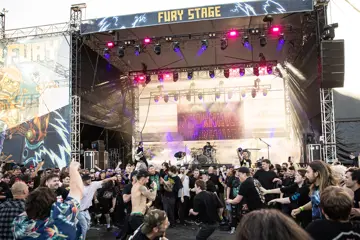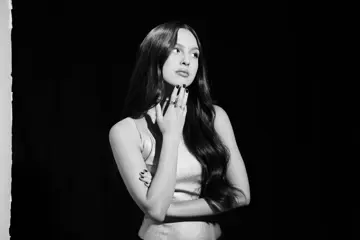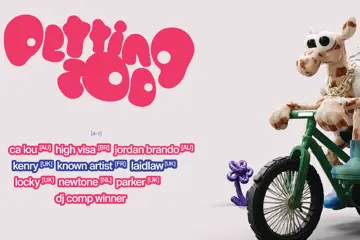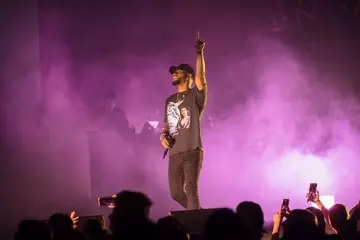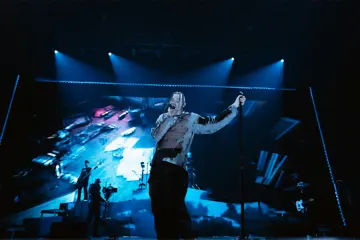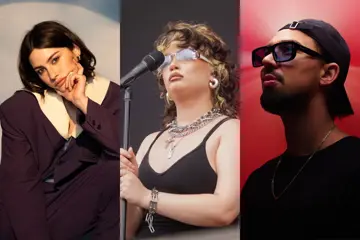You could say the boys from World's End Press were sitting under some pretty lucky stars when they were sending out the demos for their self-titled debut album to potential producers, as they got a call-back almost immediately from one of the hottest names in the business.
“We teed up a session with Tim Goldsworthy (Unkle, DFA Records), locked in a time and packed up and left, and this was directly after our tour for Second Day Uptown,” Parkinson reflects. “We'd just been touring, we had practiced all the songs, and by the time we were set to head off to Wales we were ready to record. We arrived in Heathrow and got picked up by a guy we didn't know who just whisked us off to Wales straight away – it was pretty surreal after the 24-hour flight to be heading into the unknown with this stranger, it was really cool.”
And into the unknown it was, as the group were transported out of the city and into the lush Welsh countryside.
“On the way there we passed all these castle ruins and cows, and sheep and what not,” Parkinson laughs. “We didn't know where the hell we were going, but it was beautiful. The name of the studio [we recorded in] is Rockfield, which has essentially been converted from stables. A family lived there; Kingsley [Ward], the guy who owns it, set it up in the late '60s and it's been going ever since. All kinds of British rock heritage have passed through over the years, so it was a pretty cool place to do it.”
In what could be considered a stark contrast to this recording environment, the WEP crew then made their way over to the city of Bristol to finish up production work. This leg of the journey held a particular poignancy with the group, as Parkinson relays. “The post-production was done at Massive Attack's studios, and they were a major influence on my music appreciation. Bristol is inspiring, but being in the actual HQ of where all the music I loved growing up was made was amazing.”
Don't miss a beat with our FREE daily newsletter
While WEP's music can broadly be classed as dance, their debut is laden with sonic experimentation and long, instrumental freak-out moments, to which Parkinson admits some of Bristol's characteristic melancholia has crept in. He and the group felt moments like these were important to include in the record.
“I think with any record we make we want to have those [instrumental moments], because that's what you buy albums for, or it's what I buy albums for. I mean, singles you can hear on the radio, they sort of stand alone, but it's those moments that are maybe not suitable for radio that I almost enjoy more.”
With plenty of new ammunition to fire at audiences, Parkinson says he and the group are excited to bring a more lively performance to what can be heard on the record, with extended versions of those instrumental moments. “We've kind of got this idea that one day we're going to play a show where we can play our fourteen minute closer [from the album, Out]; we want to indulge and play that in front of an audience, because it's just a nice textural sort of thing.”
Having recently covered Tame Impala's instant classic Elephant for triple j's Like A Version, Parkinson says the song could possibly find its way into their forthcoming setlists. “We were totally setting ourselves up for a big backlash from psychedelic rock fans [by picking that song]” muses Parkinson, “we expected them to be like, 'You murdered this brilliant song!' Fortunately I don't think we got too much of a sting from it.
“We kind of realised it was an ambitious choice when we sat round listening to it and thought, 'Oh, most of this is just a soaring guitar solo' and we play our instruments totally differently to the way Kevin Parker does, so we had no choice but to kind of do it in a completely different way. We actually only had a week to do it, because we got a late call from triple j. It was pretty hectic, but it was a fun process to take apart a song and see what we could do with it.”








